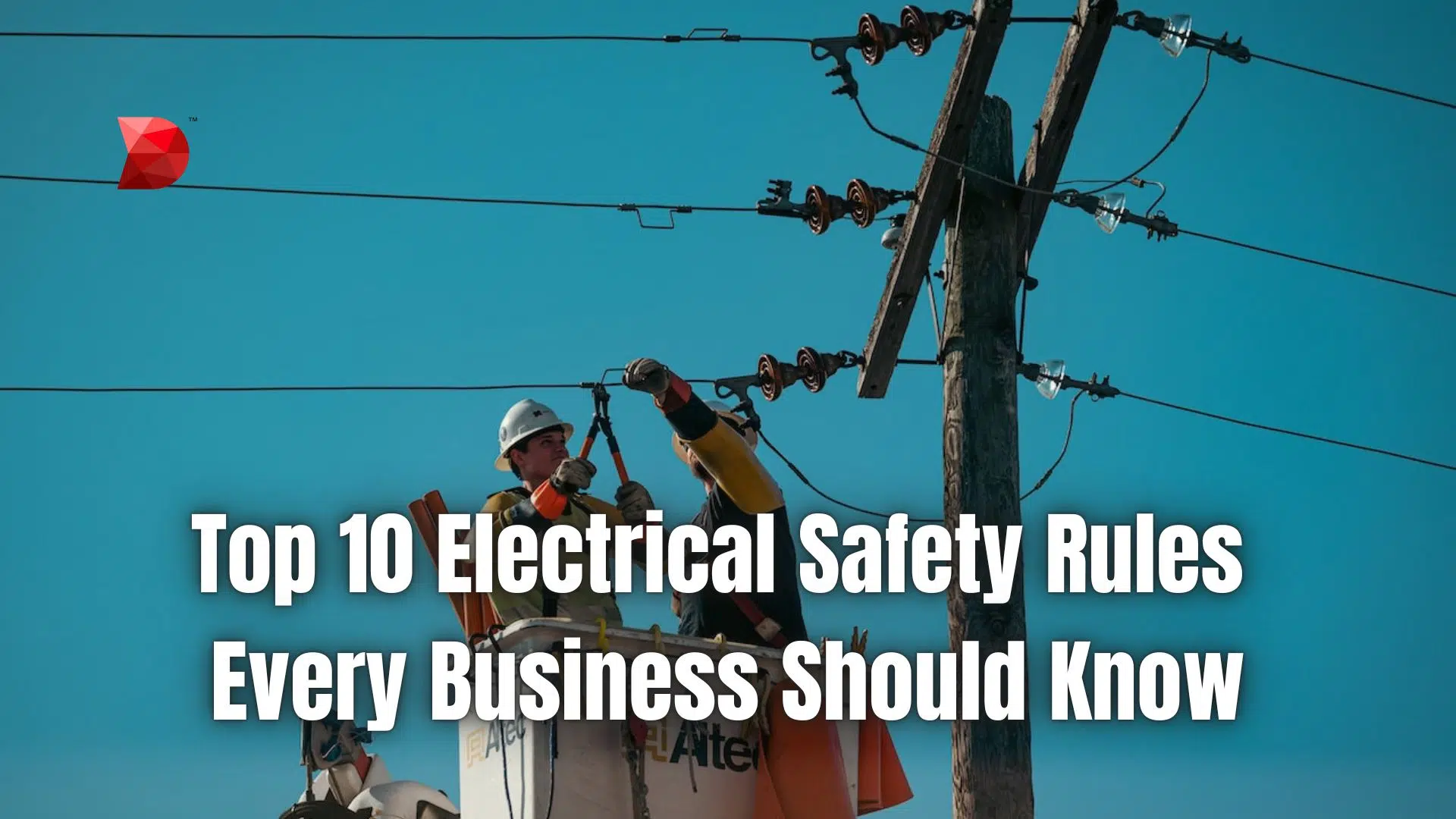Did you know that following electrical safety rules is crucial to preventing accidents and potential dangers? Whether you are at home or work, it is important to be aware of the potential electrical hazards and take necessary precautions. In this article, you will discover 10 important electrical safety rules to remember. By implementing these rules in your daily life, you can ensure a safe environment and protect yourself and others from electrical accidents. So, let’s get started and learn how to stay safe around electricity!
10 Important Electrical Safety Rules to Remember
Always use insulated tools
When it comes to working with electricity, safety should always be a top priority. One important rule to remember is to always use insulated tools. Insulated tools are designed to provide an extra layer of protection against electric shock. They are made with materials that do not conduct electricity, such as rubber or plastic. By using insulated tools, you significantly reduce the risk of accidental contact with live wires or electrical sources.
Turn off the power
Before working on any electrical equipment or performing any electrical repairs, it is crucial to turn off the power. This means shutting off the circuit breaker or unplugging the device from the electrical outlet. By turning off the power, you eliminate the risk of electric shock or short circuits. It is important to double-check that the power is indeed off by using a voltage tester before commencing any work.
Use appropriate electrical cords
Using the right electrical cords is essential for maintaining safety. Always choose cords that are appropriate for the task at hand and ensure they are in good condition. Avoid using frayed or damaged cords as they can pose serious safety hazards. Additionally, make sure the cords are rated for the voltage and power requirements of the equipment you are using. Using mismatched cords can lead to overheating, electrical fires, or equipment failure.
Avoid overloading outlets
Plugging too many devices into a single outlet can overload it, leading to overheating and potentially causing a fire. To prevent this, distribute your electrical devices across different outlets in your home or workplace. Use surge protectors or power strips with built-in overload protection when you need to plug in multiple devices. Remember, it is better to err on the side of caution and spread out your electrical load to ensure safety.
Keep water away from electrical sources
Water and electricity do not mix well and can be a deadly combination. Never operate electrical appliances or touch electrical outlets with wet hands. Keep electrical equipment away from sinks, bathtubs, or any other water sources to prevent the risk of electric shock. If you encounter any electrical equipment that has been exposed to water, make sure to have it checked by a professional electrician before using it again.
Respect electrical warning signs
Electrical warning signs are there for a reason. These signs are designed to warn individuals about potential electrical hazards and to ensure their safety. It is important to always pay attention to and respect these signs. Some common electrical warning signs include high voltage signs, electrical hazard signs, and signs indicating the presence of live wires. Ignoring these signs can lead to serious injuries or even fatalities.
Install ground fault circuit interrupters (GFCIs)
Ground fault circuit interrupters (GFCIs) are special outlets that are designed to protect against electrical shock. They work by quickly shutting off the power supply when they detect a ground fault or a potential electrical leakage. GFCIs should be installed in areas where water and electricity are in close proximity, such as kitchens, bathrooms, or outdoor outlets. These devices provide an added layer of protection and reduce the risk of electric shock.
Properly maintain electrical equipment
regular maintenance of electrical equipment is crucial for ensuring safety. This includes checking for any loose connections, frayed wires, or signs of damage. Make it a habit to clean electrical equipment regularly and keep them free from dust and debris. If you notice any issues or abnormalities with your electrical equipment, it is essential to have them addressed by a professional electrician as soon as possible.
Regularly inspect electrical cords and outlets
Electrical cords and outlets can deteriorate over time, leading to potential safety hazards. Regularly inspecting these components is important for identifying any signs of wear and tear. Look for frayed cords, loose wires, or damage to the outlets. If you find any issues, replace or repair them immediately to prevent electrical accidents. It is always better to be proactive in maintaining the safety of your electrical system.
Consult a professional electrician when needed
When it comes to complex electrical tasks or issues, it is always best to consult a professional electrician. They have the necessary expertise and knowledge to handle electrical work safely and efficiently. Avoid attempting electrical repairs or modifications if you are not trained or experienced in the field. Remember, your safety is the top priority, and it is worth investing in a professional electrician to ensure the job is done correctly and safely.
By following these 10 important electrical safety rules, you can significantly reduce the risk of accidents, injuries, or even fatalities caused by electricity. Always prioritize safety and take the necessary precautions when working with or around electrical systems. Remember, it’s better to be safe than sorry!
- Tags:
- Electrical
- guidelines
- safety rules



